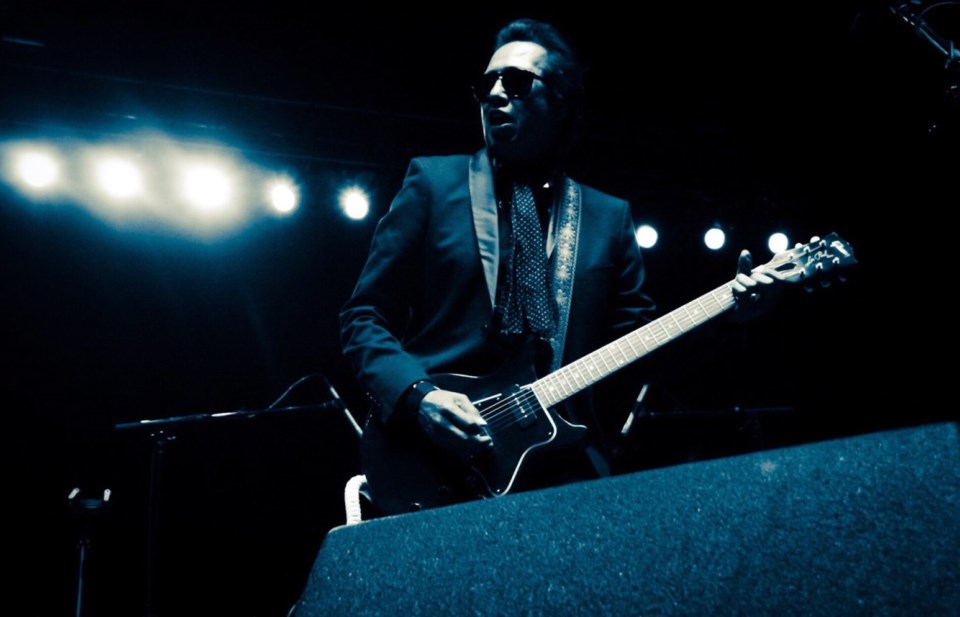IN CONCERT
What: Alejandro Escovedo
Where: Upstairs Cabaret, 15 Bastion Sq.
When: Saturday, June 22, 7 p.m.
Tickets: $35 from and Lyle’s Place
Alejandro Escovedo has kicked around with a lot of bands over the years, including punk rockers the Nuns, roots rockers the True Believers, cow-punks Rank and File and garage rockers Buick MacKane. He has written for the theatre and recorded with Bruce Springsteen, and released music on both major and minor record labels. He even opened for the Sex Pistols in 1978.
To some, he’s a living legend. But Escovedo doesn’t feel very legendary at the moment, given how people of colour are still being treated in his industry.
“When I think about the way I’ve been treated throughout the years,” Escovedo, 68, said during a tour stop in San Francisco, “the music industry is not the most aware and socially conscious business you can be in. It makes money off those things, but it certainly doesn’t respect and treat its workers in the way you would think.”
After Escovedo finally began performing under his own name in 1992, critics from places such as the AllMusic Guide (which called Escovedo “one of the strongest and most distinctive lyrical voices of his generation”) and No Depression magazine (which named him artist of the decade in 1998) began placing him among the elite in his field.
The acclaim never translated into mainstream success, however, despite some high-placed help.
Jon Landau, Springsteen’s longtime manager, who also managed Escovedo, was reported in The New Yorker as saying: “It remains an injustice that such a great guy and great talent has not become more widely known and appreciated.”
The arduous journey was on Escovedo’s mind during our interview. On a tour to promote The Crossing, his 2018 concept record about the immigrant experience in America, the Dallas-based performer spends most days either singing songs about racism and bigotry or talking in interviews about what inspired them. Sadly, he has no shortage of stories to illustrate his point.
“There was a time when [record label] Rykodisc was trying to get my records played, and the program directors [at radio stations] would say: ‘We already have one Mexican band, we don’t need another.’ My music was never in the rock ’n’ roll sections at record stores, it was in Latin or worldbeat, just because of my name. Being told by certain managers that I was too dark, that’s a strange thing. One guy [at a radio station] said: ‘How do you expect us to play his music when we can’t even pronounce his name?’ ”
It shouldn’t be this way for him or anyone else, but that’s the world we live in, Escovedo said. He blames one person for bringing racism to the fore: U.S. President Donald Trump. Escovedo is a big fan of fellow Texan Beto O’Rourke, who is seeking the Democratic nomination for U.S. president in 2020. Escovedo is holding out for the possibility of change in the next election.
“The night [former U.S. President Barack] Obama was elected, I was alone in my home out in the hill country of Texas, and I wept. I never thought I’d see that — that an African-American man would become president. When it happened, I cried like a baby. I thought it was the most amazing event, and that our world was suddenly going to be a better place. To watch how he was treated and mistreated, and disrespected, it was all spearheaded by the guy who is president now. People forget that. He’s a racist pig.”
In 2003, Escovedo survived a battle with Hepatitis C that nearly killed him. Soon after his recovery, he embarked on a creative run, releasing a new album every two years or so.
The Crossing is the latest entry in his ever-shifting catalogue, and features a story central to its narrative that could have been ripped from the headlines of any news outlet in North America.
The two characters in The Crossing (Salvo, who is from Italy, and Diego, who is from Mexico) journey into America with music on their minds, only to encounter racism and violence. Their story mirrors the life experiences of both Escovedo and Italian guitarist Antonio Gramentieri, who co-wrote the album.
“For these boys, it’s not so much about finding work and fortune as much as it is finding this esthetic world they believe still exists,” Escovedo said.
“Through this journey, they find that America is not the place they dreamt it would be.”
The album title was a reference to the journey so many immigrants have made into the U.S., including Escovedo’s father, Pedro, a self-taught musician who played in various bands and later became a plumber. He raised 13 kids, eight of whom were professional musicians (two of Escovedo’s brothers were members of the band Santana; his niece is Sheila E., who worked with Prince and was a solo star in the 1980s).
At the time of his father’s death, he was the patriarch of a family with 41 grandchildren, 50 great-grandchildren and 19 great-great-grandchildren.
The Crossing was written in tribute to his father, who suffered greatly during his youth. He snuck across from Mexico into Texas by himself when he was 12, searching for his parents, who had made the journey before him.
“Writing about my father crossing the border and the indignities he had to face as a young boy in search of his parents, with different water fountains and being forced to sit at the back of the bus . . .” Escovedo said, his voice trailing off.
“I’m older, and what I leave behind is very important to me. I want my children and my grandchildren to understand that what I tried to do in this world through music and words was create something that was relatable to people.”



